MailChimp vs SurveyMonkey
November 12, 2023 | Author: Sandeep Sharma
40
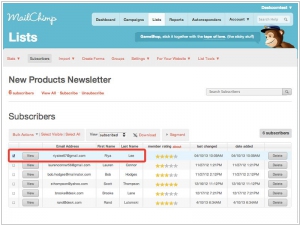
Online email marketing solution to manage contacts, send emails and track results. Offers plug-ins for other programs. Get insight about your subscribers and keep your contacts in one place with subscriber profiles. MailChimp helps you email the right people at the right time. In addition to our built-in segmentation and targeting options, you can automate triggered emails based on your subscribers' website activity.
21
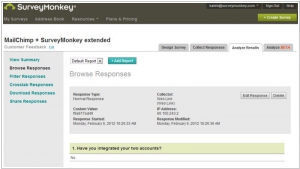
Create and publish online surveys in minutes, and view results graphically and in real time. SurveyMonkey provides free online questionnaire and survey service. Build your own surveys or choose from our templates. Choose how to distribute and start collecting responses. Use our powerful analytical tools for intelligent insights.
See also:
Top 10 Online Survey software
Top 10 Online Survey software
MailChimp and SurveyMonkey are both popular online platforms that serve different purposes. MailChimp is primarily an email marketing platform that allows users to design, send, and track email campaigns to engage with their audience. It offers features such as audience segmentation, automation, and analytics to optimize email marketing efforts. On the other hand, SurveyMonkey is a versatile survey tool that enables users to create and distribute surveys, collect responses, and analyze data. It provides a range of survey question types, customization options, and reporting features to gather valuable insights.
See also: Top 10 Online Survey software
See also: Top 10 Online Survey software
MailChimp vs SurveyMonkey in our news:
2021. Intuit to acquire Mailchimp
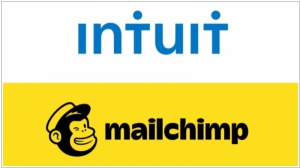
Intuit has made a significant move in the email marketing industry by acquiring Mailchimp for a whopping $12 billion. Although Intuit is not widely recognized in the email marketing space, this strategic purchase aligns with their ambitions to strengthen their position as a hub for small business growth and disrupt the small business midmarket. Intuit's flagship product, QuickBooks, is already a well-known offering among SMBs, and acquiring Mailchimp presents an opportunity to expand their service offerings to their existing customer base. While it may seem like a bold move, Intuit's decision is likely driven by the anticipation of significant corporate synergies that will outweigh the initial investment.
2021. Mailchimp moves into e-commerce
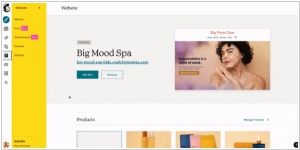
Over the past few years, Mailchimp has evolved from a simple newsletter platform into a comprehensive marketing company. While the platform has already provided integrations with various e-commerce websites, it is now introducing its own online stores tailored to small and medium businesses. Additionally, Mailchimp is launching a new appointment booking service. These new offerings are part of Mailchimp's "Websites & Commerce" plans, which include a free tier providing most of the essential functionalities. Users on the free plan will incur a 2% transaction fee. For $10/month, Mailchimp will remove its branding, provide access to email and chat support, and reduce the transaction fee to 1.5%.
2020. Mailchimp launches new AI marketing tools
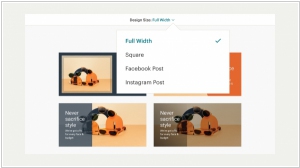
Mailchimp has introduced a suite of AI-powered tools aimed at providing small businesses with the same advanced capabilities utilized by their larger counterparts. These tools encompass personalized product recommendations for customers and predictive analytics for targeted marketing, enabling businesses to identify potential buyers more effectively. Additionally, Mailchimp has unveiled a new AI-driven tool that assists business owners in creating visually appealing assets, leveraging its acquisition of Sawa. Furthermore, a tool has been introduced to aid in crafting compelling email subject lines, helping businesses enhance their communication strategies.
2019. Mailchimp acquired e-commerce platform LemonStand and broke up with Shopify
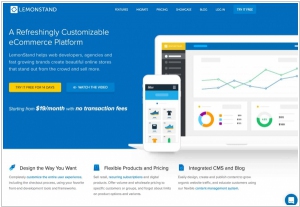
Mailchimp has made the decision to discontinue its app that allowed users to utilize their Shopify data for creating targeted email campaigns. This move came after disagreements arose between the two companies regarding the sharing of customer data. Interestingly, prior to parting ways with Shopify, Mailchimp quietly acquired LemonStand, a smaller competitor of the e-commerce platform. This acquisition was aimed at enhancing Mailchimp's platform by incorporating more integrated e-commerce features. It serves as an indication of the growing importance of Mailchimp's e-commerce business. In the past year, Mailchimp collaborated with Square to introduce shoppable landing pages, showcasing the company's dedication to developing native e-commerce functionalities. While Mailchimp continues to expand its platform's e-commerce capabilities, it remains open to collaborating with third-party providers (excluding Shopify, the largest among them) to offer additional functionality to its users.
2018. Mailchimp partnered with Square to launch shoppable landing pages
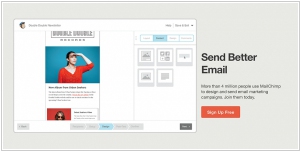
Email newsletter service Mailchimp has announced a collaboration with Square, enabling its users to create landing pages integrated with e-commerce functionalities. These shoppable landing pages serve as an additional sales channel for businesses, facilitating the selling of limited-edition products and targeted promotions. While Mailchimp's landing pages have been available for some time, their primary purpose was to capture email addresses or direct users to a store. With this partnership, customers can now establish complete shopping experiences with built-in payment options directly on these pages. To simplify the process, Mailchimp provides a range of pre-designed templates and a user-friendly drag-and-drop builder. Square will apply a flat processing rate for transactions, while Mailchimp offers this service at no additional cost to its users.
2017. Mailchimp’s marketing automation tools are now available for free

The mailing service MailChimp provides a range of advanced marketing tools to its users, including the ability to follow up with online shoppers. Excitingly, starting today, these advanced marketing automation services are being offered for free to all MailChimp users, even those on the free plan. This means that any online business can now effortlessly create automatic emails that are triggered, for instance, a day after a virtual shopping cart is abandoned or a day after a first purchase is made. Additionally, users can establish a series of welcome emails or utilize the service for transactional messages such as receipts, shipping updates, or invoices. This expansion of free services from MailChimp empowers businesses to enhance their customer communication and engagement without incurring additional costs.
2017. MailChimp combines email marketing with Facebook Ads
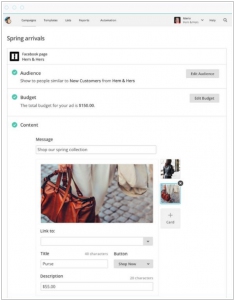
MailChimp has expanded its offerings beyond email marketing by introducing a Facebook advertising integration. This integration enables users of the email marketing platform to create Facebook ads and monitor their performance within the same platform. By leveraging MailChimp's intelligent segmentation capabilities to target recent customers or engaged subscribers, businesses can efficiently generate lookalike audiences on Facebook. The rollout of Facebook Ad Campaigns will occur gradually, with availability for all customers expected by February 2.
2014. SurveyMonkey invested in mobile feedback service Apptentive
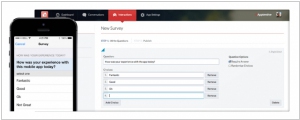
Leading the Series A funding is Apptentive, a company that provides in-app feedback tools for developers to engage with their app users, request reviews, and facilitate direct communication. This funding round was spearheaded by online survey service SurveyMonkey. The partnership between SurveyMonkey and Apptentive aims to offer technical and product interactions specifically tailored for mobile customers. Apptentive faces competition from various solutions in the market, including Appsfire, Appboy, Helpshift, Mixpanel, Localytics, and others. One of Apptentive's standout features is its proprietary measurement called "Love Score," which enables app developers to gauge how well their app is received compared to others in the app ecosystem. The Love Score reports provide valuable customer insights, such as the app's popularity relative to competitors, analysis of app store reviews, assessment of reviewer quality and bias, and more.
2014. SurveyMonkey acquires competitor FluidSurveys
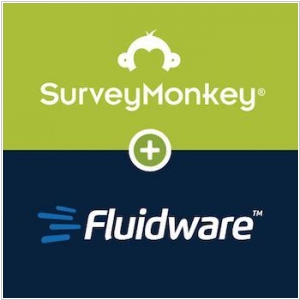
Today, SurveyMonkey, the world's foremost online survey platform, has officially announced its acquisition of Fluidware. Fluidware is a provider of online survey and application review tools, known for their offerings FluidSurveys and FluidReview. This acquisition is highly complementary and will serve to expand SurveyMonkey's global presence, particularly in the desirable Canadian market where Fluidware has established itself as an industry leader. SurveyMonkey's CEO, Dave Goldberg, expressed enthusiasm for the collaboration with the talented Fluidware team, emphasizing the company's commitment to attracting new customers, accessing new territories, and harnessing cutting-edge technologies. These efforts align with SurveyMonkey's overarching mission of assisting customers in making informed decisions.
2011. SurveyMonkey acquires competitor Zoomerang
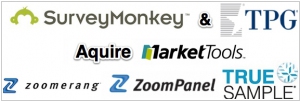
When faced with the challenge of acquiring a major competitor without sufficient funds, one viable solution is to form a partnership with a private equity firm. In the case of SurveyMonkey, they have successfully employed this strategy by collaborating with TPG Capital to acquire MarketTools' products: Zoomerang, ZoomPanel, and TrueSample. Through the acquisition of ZoomPanel, SurveyMonkey's burgeoning online panel service will experience substantial growth, expanding its panelists from 500,000 to an impressive total of 2.5 million. This significant increase in panelists greatly enhances SurveyMonkey's value proposition for businesses seeking to conduct comprehensive market research. Furthermore, the inclusion of TrueSample will play a crucial role in elevating the quality of SurveyMonkey's research practices. By eliminating fake and duplicate responses, disengaging uninterested respondents, and leveraging the technological capabilities of SurveyScore, TrueSample will actively contribute to the improvement and accuracy of SurveyMonkey's research endeavors.



